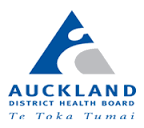Whakaminenga | Who is this for: Liaison Psychiatry & CAS Clinicians working across Kahui O Te Ihi Mental Health Services
Takawā | Time: 8 hours
Course contact: Pippa Holland and Nadine Lake
Method: Face to face
Frequency: Annually
Kia ora!
This is a forum for curious minds eager to learn about the latest research happening in the Kāhui o te Ihi. Alongside our speakers, there will be a Q&A session discussing how you can get involved in research (both academically and/or through the workplace).
Who is this for Kāhui o te ihi (MH&A) Kaimahi
Time: 3 hours
Course contact: Nadine Lake (Te Toka Tumai)
Method: Face-to-face / ZOOM
This eAssessment is intended for Mental Health workers.
The eAssessment will examine knowledge of the Mental Health Act (1992). This eAssessment is a mandatory requirement of all new clinical staff.
If workers are ill-informed on the provisions of the Act. service users may be treated inappropriately, under-treated or inappropriately detained. It is important that workers are confident that they have the required business knowledge, and that they have met the required standard of achievement. Well-designed and well-integrated testing and assessment strategies provide very real benefits to the learner, the trainer and the organisation.
It is a medico-legal and professional expectation that the Mental Health nurse will dispense and administer prescribed medication to the service user in a safe, timely, accurate and patient centered manner.
This course has been complied to provide the necessary information and guidance to promote your best nursing practice. It comprises of a medication generic test, followed by a practical ward assessment with your nurse educator.
 To understand the legislative provisions that shape the ADHB policy and how the policy drives Safe Practice in the Community.
To understand the legislative provisions that shape the ADHB policy and how the policy drives Safe Practice in the Community.
This course is built on ADHB's core value of "respect". Information about mental health service users that is shared or withheld respectfully promotes safe and effective communication.

This course provides a framework to help mental health clinicians balance conflicting interests in sharing clinical or personal information between service users and their significant others. It offers a path to support service users to share information and to support families with sometimes very limited information.
The course will discuss a model for engaging families and service users and related legal/ethical issues, current research on sharing clinical information, and some specific communication skills to manage difficult or sensitive situations.